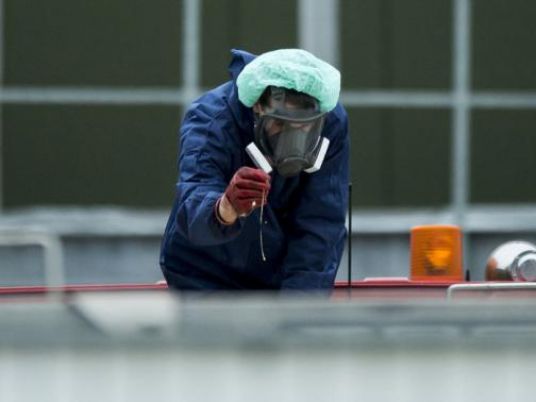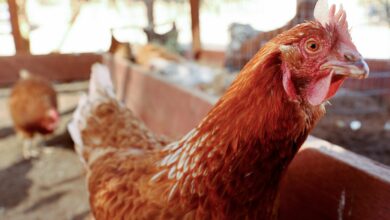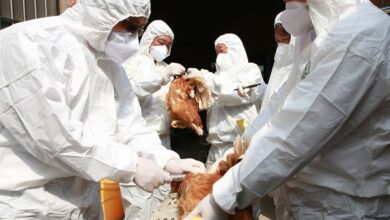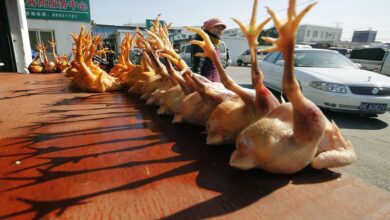
A Dutch bird flu outbreak has spread to a third farm, the government said on Friday, prompting inspections at dozens of other farms in the Netherlands, a leading exporter of eggs and poultry.
The latest infection was discovered on a chicken farm in the northern town of Kamperveen, more than 100 km (60 miles) from two farms where infections have been reported in the past week, the Economics Ministry said in a letter to parliament.
All 10,000 birds would be destroyed and an exclusion zone of 10 km (6 miles) was imposed. Inspections were to be carried out at 32 nearby farms.
Three out of 12 Dutch provinces have now reported the illness, which is fatal for chickens.
A total of 203,000 chickens were being destroyed and a national lockdown on all transport of chickens, eggs and poultry products was crippling an industry that employs tens of thousands of workers.
Around 2,000 Dutch businesses, with more than 100 million chickens, produce more than 10 billion eggs a year, more than 6 billion of them destined for export.
Two of the three Dutch infections are the H5N8 strain of the illness, which has also been found on farms in Germany and Britain in recent weeks.
The H5N8 strain has never been detected in humans, but it led to the destruction of millions of farm birds in Asia, mainly South Korea, after an outbreak earlier this year.
Tests showed that the bird flu viruses in Europe are similar to one that devastated poultry flocks in South Korea, the intergovernmental World Organisation for Animal Health said.
The Dutch measure, which has also halted all exports, could soon lead to shortages of chicken meat and eggs in the European Union because the Dutch are the region's top supplier of both eggs and poultry meat.
With a population of less than 17 million, the Netherlands is the world's second largest exporter of agricultural products after the United States, selling $79 billion euros (63.19 billion pounds) of agricultural goods abroad last year.




